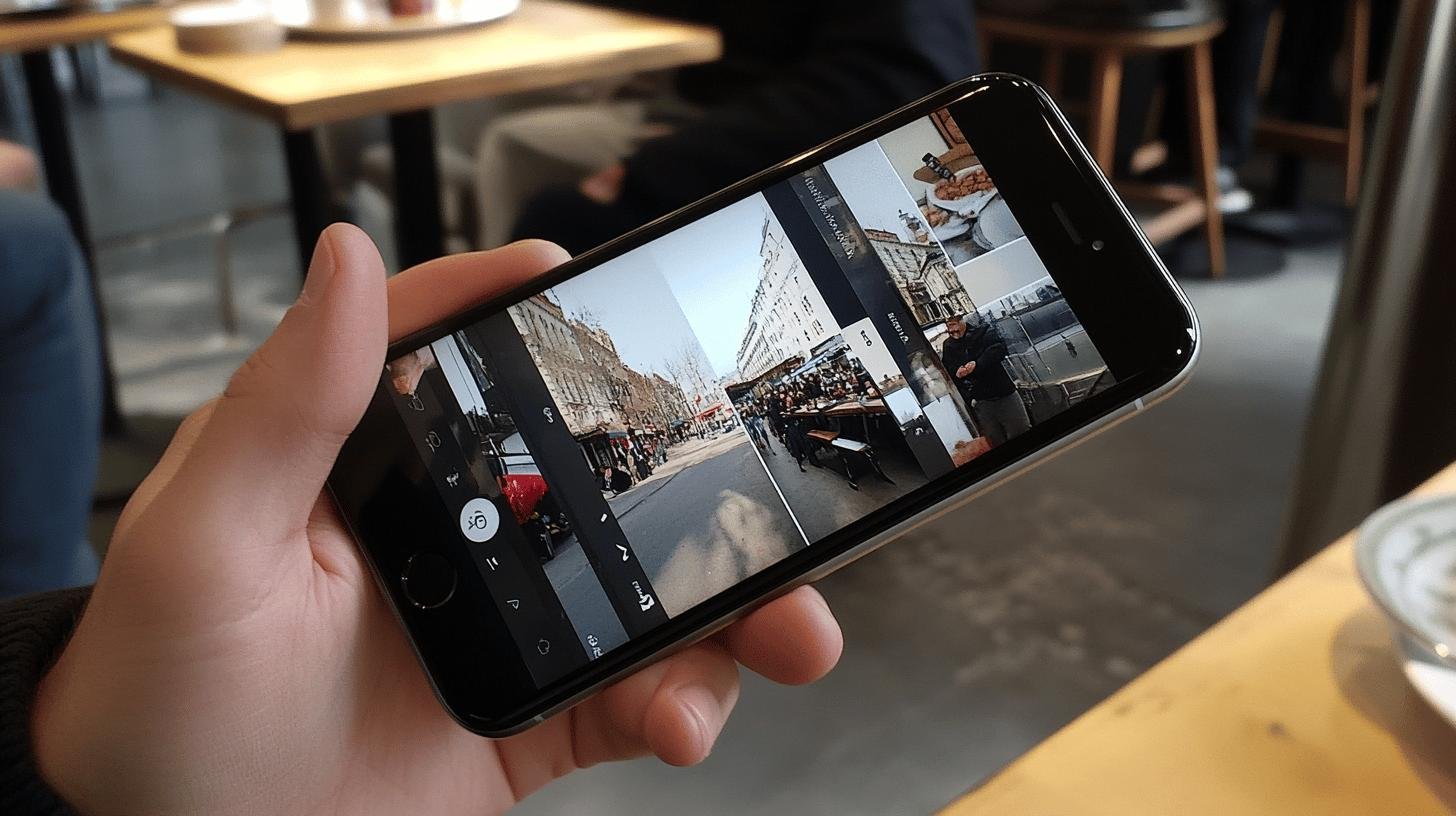Ever been torn between clicking “Next” or endlessly scrolling? You’re not alone. The battle of pagination vs infinite scroll SEO is a hot topic in the SEO world. Some see pagination as a tried-and-true way to keep things organized, while others think infinite scroll boosts engagement with its sleek feel. But which is better for those all-important search rankings? Let’s find out which approach could get your content noticed. Grab a coffee, and let’s geek out on getting your site the SEO love it deserves!
Understanding Pagination vs Infinite Scroll SEO and its Benefits
Pagination is like splitting a large book into chapters. It divides content into separate pages, making it easier to find what you’re looking for. Imagine you’re on an e-commerce site. Instead of endless scrolling, you click through pages to find that perfect pair of shoes. This tool keeps websites organized, especially where users search for specific content.
Why do search engines pagination? Here’s why:
- Improved Crawlability: Each page gets a unique URL, simplifying search engine crawling.
- Better Indexing: Clear URLs help search engines index content more effectively.
- URL Structuring: Neat URLs organize content logically.
- Access to Footers: Users and search engines can reach footers for extra resources.
- Keyword Targeting: Different keywords can be focused on each page, enhancing SEO.
But there can be hiccups, like duplicate content. If pagination isn’t set up right, search engines might see the same content on multiple pages. To avoid this, use “rel=canonical” tags to show the primary page to focus on. Also, avoid thin content that doesn’t add value. This will keep your website’s SEO in top shape!
Exploring Infinite Scroll and its Impact on SEO

Infinite scroll is like a revealer; it reveals more content as you scroll. Seen often on social media or news sites, it’s great for exploring new content without a specific target. Visually appealing, it’s loved by sites with lots of photos or portfolios.
1. SEO Benefits of Infinite Scroll
Infinite scrolling can make sites engaging! Users stay longer as they discover more content. This is handy on mobile devices, where tapping buttons is a hassle. For exploratory sites like social media, infinite scroll keeps users hooked without needing to decide on a next click.
2. SEO Drawbacks of Infinite Scroll
But there’s a catch! Search engines struggle to index content as they don’t scroll. This means some content might not appear in search results. Also, if too much content loads at once, it can slow the page, annoying users and search engines. Footers often go unnoticed, missing important links.
To satisfy users and search engines, balance is key. A “load more” button can offer control to users while ensuring search engines access all content. This way, you blend a smooth user experience with better SEO.
Comparing User Experience: Pagination vs Infinite Scroll SEO
Pagination is like reading a book chapter by chapter. It offers structured navigation, ideal for users seeking specific info. Think of searching for a product on an e-commerce site. Pagination helps you move between pages, making it simpler to find what you want. This method keeps things tidy, providing a clear user path.
Pagination offers structured, page-by-page navigation that requires more clicks and makes specific content easy to find, while infinite scroll provides a continuous and seamless experience, keeping users engaged longer but potentially overwhelming them with content.
Conversely, infinite scroll resembles an endless candy aisle—always more to see! It reduces click fatigue, as users just scroll. It’s useful on mobile devices, where tapping is tedious. This approach keeps users engaged longer, leading to deeper exploration, especially on constantly updated platforms like social media and news sites.
Technical SEO Considerations for Pagination and Infinite Scroll

In comparing both pagination vs infinite scroll SEO, not that they have SEO quirks to consider. Pagination resembles a well-organized library, but if it’s poorly labeled, it gets messy. Use rel=”next” and rel=”prev” tags to guide search engines through page sequences. Without these, search engines might get lost and crawl inefficiently. Infinite scroll, meanwhile, puzzles search engines. They don’t scroll like humans, so relying on JavaScript can hinder content indexing.
Address these challenges with these practices:
- Pagination best practices:
- Use these rel tags to guide search engines.
- Ensure page speed is optimized.
- Use canonical tags to avoid duplicate content.
- Infinite Scroll Best Practices:
- Implement a “load more” button for search engine access.
- Ensure all critical content is reachable without scrolling.
- Optimize JavaScript for faster page loads.
SEO success means being mobile-friendly and accessible. These two: pagination vs infinite scroll SEO must work seamlessly on mobile devices, where screens are smaller and user patience is thinnest. Accessibility ensures everyone, including those with disabilities, can enjoy your content. Whether using pagination or infinite scroll, keeping these elements correct will support high rankings and user satisfaction.
Choosing Between Pagination and Infinite Scroll for Your Website
Deciding between pagination vs infinite scroll SEO is like choosing between pizza and burgers—both are tasty but depend on your craving! When deciding, consider your content, user experience, and audience behavior.
If your site resembles a library with organized sections—say, an e-commerce site with product categories—pagination is ideal. It offers a clear structure, helping users find what they need without feeling overwhelmed. Alternatively, infinite scroll is like a treasure hunt, fit for browsing sites like social media.
Scenarios where each method excels include:
- Pagination:
- E-commerce sites with organized products.
- Websites with easily navigable search results.
- Sites with content benefiting from segmentation.
- Infinite Scroll:
- Social media platforms with endless exploration.
- News feeds with continuously updated stories.
- Image-heavy sites showcasing a continuous visual stream.
Testing both methods on your site is crucial. See how users react. Do they prefer scrolling ease or clicking clarity? Experimenting will reveal user preferences and SEO impact. Thus, you’ll create a site that keeps users happy and boosts your rankings!
Conclusion
Navigating between pagination vs infinite scroll SEO can feel tricky, right? We dove into pagination’s role in boosting SEO with its clear page paths and its unique perks, like easier search engine indexing. But we also called out potential snags like duplicate content. Then, infinite scroll took center stage, dazzling with user engagement but raising red flags with indexing and loading issues.
The key? Balancing user experience alongside search needs for pagination vs infinite scroll SEO. Whether it’s pagination or infinite scroll, each serves its unique purpose. For a winning SEO strategy, understanding what suits your site is critical. Keep testing, stay curious, and enjoy the insights you gain!
FAQ
In comparing pagination vs infinite scroll SEO which is better?
Pagination is better for SEO as it improves crawlability and indexing. It suits sites with structured content like e-commerce. Infinite Scroll offers a seamless experience, great for content-heavy sites.
Is infinite scroll bad for SEO?
Infinite scroll can challenge SEO since search engines might not index all content. Balanced use with features like “load more” buttons can help improve crawlability.
Is pagination bad for SEO?
Pagination isn’t bad for SEO when implemented properly. It enhances crawlability with URL structuring and better indexing, particularly beneficial for organized content.
Is pagination outdated?
Pagination isn’t outdated; it’s useful for organized content navigation, especially where users seek specific information. It’s all about how well it’s set up to meet user needs and SEO goals.
How does infinite scrolling impact user engagement?
Infinite scroll boosts user engagement by reducing clicks and keeping users browsing longer. It’s particularly beneficial on mobile, where people want a seamless experience.




